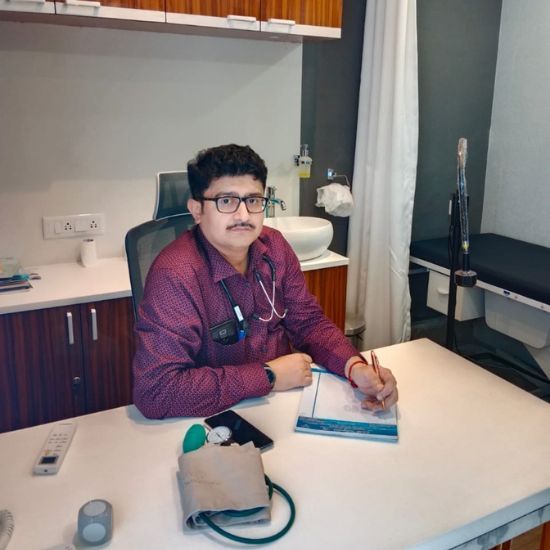When people hear the word “andrologist,” they often wonder what it means. Just as gynecologists specialize in women’s health, andrologists focus on men’s reproductive and urological health. If you’ve ever faced fertility issues, hormonal imbalances, or male-specific health concerns, an andrologist is the doctor to visit.
Understanding what andrologists do can help you or your loved ones seek the right medical care. In this article, we’ll explain the role of an andrologist, common conditions they treat, and when you should consult one.
What is Andrology?
Andrology is a specialized branch of medicine that deals with:
- Male reproductive health
- Urological conditions in men
- Hormonal imbalances
While andrology focuses mainly on men, it is sometimes connected to infertility issues in couples. Andrologists provide solutions for conditions affecting the male reproductive system.
Quick Fact: According to the World Health Organization (WHO), around 15% of couples worldwide face infertility problems, where male infertility plays a role in about 50% of cases.
Who is an Andrologist?
An andrologist is a doctor who specializes in diagnosing and treating male reproductive issues. This includes problems with male fertility, sexual health, and urological concerns.
They are experts in conditions such as:
- Male Infertility
- Erectile Dysfunction (ED)
- Low Testosterone Levels
- Varicocele (enlarged veins in the scrotum)
- Testicular and Prostate Disorders
Andrologists work closely with urologists and endocrinologists to provide comprehensive care for men’s health.
What Does an Andrologist Treat?
1. Male Infertility
One of the leading reasons people visit andrologists is male infertility. Infertility can result from low sperm count, poor sperm mobility, or hormonal imbalances.
- Common Causes: Varicocele, infections, lifestyle factors, or genetic disorders.
- Treatment: Medications, hormone therapy, or surgery.
Also Read :- How Common is Male Infertility?
2. Erectile Dysfunction (ED)
Erectile dysfunction is when a man cannot maintain or achieve an erection for sexual activity.
- Causes: Stress, diabetes, heart disease, or hormonal issues.
- Solutions: Medications, lifestyle changes, or therapy.
Did You Know? ED affects about 1 in 10 men globally, making it a common health concern.
3. Hormonal Imbalance
Men need balanced testosterone levels for overall health. Low testosterone (Low T) can cause fatigue, weight gain, and decreased libido.
- Diagnosis: Blood tests and physical exams.
- Treatment: Testosterone replacement therapy or lifestyle changes.
4. Varicocele
Varicocele is a condition where veins in the scrotum become enlarged, leading to infertility or pain.
- Symptoms: Swelling, discomfort, or visible veins.
- Treatment: Surgical correction.
5. Testicular and Prostate Disorders
Andrologists also treat problems like testicular cancer, prostate enlargement, or infections.
- Signs: Pain, lumps, or changes in urination.
- Importance: Early diagnosis ensures better outcomes.
When Should You See an Andrologist?
Many men delay seeing specialists due to embarrassment or lack of awareness. However, timely consultation is crucial. Here are signs you should visit an andrologist:
- Difficulty conceiving with your partner.
- Problems achieving or maintaining an erection.
- Low energy, mood swings, or reduced libido.
- Pain or discomfort in the testicles or groin.
- Changes in urination patterns (frequent or painful urination).
Note: Don’t hesitate to consult an andrologist. Early treatment can prevent more severe health problems. For any concern contact us immediately.
How Does an Andrologist Diagnose Conditions?
Andrologists use various tools and tests to identify health concerns. These include:
Tissue testing for severe conditions, such as testicular cancer.
Medical History and Physical Examination:
Reviewing your symptoms, lifestyle, and overall health.
Blood Tests:
To check testosterone levels, hormone balance, and other parameters.
Semen Analysis:
Examining sperm count, mobility, and quality for fertility concerns.
Imaging Tests:
Ultrasound scans to diagnose conditions like varicocele or prostate issues.
Biopsy:
Tissue testing for severe conditions, such as testicular cancer.
Benefits of Visiting an Andrologist
Consulting an andrologist can significantly improve your quality of life. Benefits include:
- Improved reproductive health.
- Better management of hormonal imbalances.
- Diagnosis and treatment of sexual health concerns.
- Relief from pain or discomfort related to urological problems.
- Comprehensive care tailored to men’s needs.
How to Choose the Right Andrologist?
Finding the right andrologist is essential for effective treatment. Consider the following:
- Experience: Look for doctors with proven expertise in men’s health.
- Qualifications: Ensure they are certified specialists in andrology.
- Reviews: Check patient reviews or testimonials.
- Facilities: Choose clinics with advanced diagnostic tools.
- Comfort: Opt for doctors who make you feel at ease.
At Dr. Nilanjan Mitra’s Clinic, we provide expert care for all male reproductive and urological concerns.
Myths About Andrologists and Men’s Health
There are many misconceptions about andrologists. Let’s clear up a few:
- Myth: Only older men need an andrologist.
- Fact: Men of all ages can face reproductive or hormonal issues.
- Myth: Male infertility is rare.
- Fact: Male infertility contributes to 50% of infertility cases worldwide.
- Myth: Erectile dysfunction cannot be treated.
- Fact: ED has multiple solutions, including medication and therapy.
Andrologist vs. Urologist: What’s the Difference?
People often confuse andrologists with urologists. While there’s overlap, their areas of focus differ:
| Andrologist | Urologist |
|---|---|
| Specializes in male reproductive health | Treats urinary tract disorders in men and women |
| Focuses on infertility, ED, and hormones | Manages kidney, bladder, and prostate issues |
If you’re unsure which specialist to visit, start with an andrologist for male-specific concerns.
Faqs
Can an andrologist help with male infertility?
How is an andrologist different from a urologist?
Is it embarrassing to visit an andrologist?
Conclusion:
An andrologist plays a critical role in addressing men’s reproductive health issues. Whether you face infertility, hormonal imbalances, or other concerns, consulting an experienced andrologist can make all the difference.
At Dr. Nilanjan Mitra’s Clinic, we specialize in providing advanced, compassionate care for men’s health. Don’t wait for problems to worsen—schedule your consultation today and take the first step toward better health.

